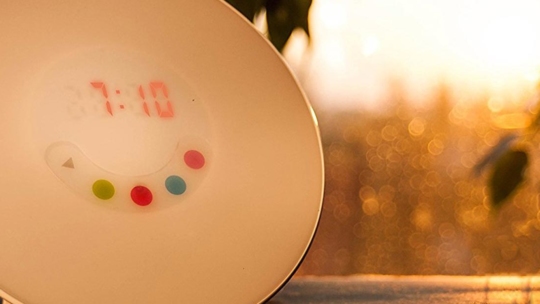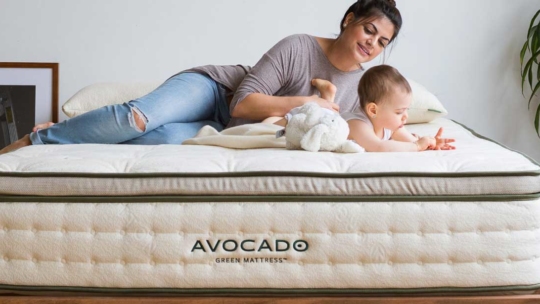Sleep-bruxism, or teeth grinding as it’s best known, is a sleep-related movement disorder in which you grind, gnash or clench your teeth.
Mild cases may not need treatment. But, in some people, it may be frequent and severe enough to lead to other problems.
You may not be aware of it until complications develop. This is why it’s important to know the signs and symptoms. These may include:
- Teeth that are flattened, fractured, chipped, or loose
- Worn tooth enamel, exposing deeper layers of your tooth
- Increased tooth pain or sensitivity
- Tired or tight jaw muscles, or a locked jaw that won’t open or close completely
- Jaw pain
- Neck or face soreness
- Pain similar to an earache
- Dull headache starting in the temples
- Damage from chewing on the inside of your cheek
- Sleep disruption
Causes of Teeth Grinding
The cause of grinding is not yet understood. But it may be brought on due to a combination of factors: physical, psychological, and genetic.
It could be a coping strategy or a habit (such as during deep concentration).
Or it may be associated with arousals during sleep.
According to Mayo Clinic, there are several factors that could contribute to this.
| Stress | Increased anxiety or stress can lead to grinding of the teeth. So can anger and frustration. |
| Age | More common in young children, but it usually goes away by adulthood. |
| Personality | Certain personality traits have been shown to increase the risk of bruxism. Such as aggression, competitiveness and hyperactivity. |
| Medications | Bruxism may be an uncommon side effect of some psychiatric medications (i.e. antidepressants). |
| Substances | Certain substances may increase the risk of this condition. These include: tobacco, caffeine or alcohol. Using recreational drugs may also increase the risk of bruxism. |
| Family link | Sleep bruxism tends to occur in families. If you have bruxism, other members of your family also may have bruxism or a history of it. |
| Other disorders | Bruxism can be associated with some mental health and medical disorders. This includes: Parkinson’s disease, dementia, gastroesophageal reflux disorder (GERD), epilepsy, night terrors, sleep apnea, and attention-deficit/hyperactivity disorder (ADHD). |
Treatment Options for Teeth Grinding
Depending on the possible cause, a dentist may recommend several options to help with teeth grinding.
You may want to consider one of the following:
- Restorative treatment: such as repairing tooth damage to teeth
- Physical therapy: to relieve jaw pain or muscle stiffness
- Psychotherapy: useful if the cause is psychological
- Medication: anti-anxiety medication or muscle relaxants may help
Healthline says that the most effective way to alleviate the effects of teeth grinding is to wear a mouth guard.
If you grind your teeth at night, they suggest having a nocturnal bite plate or bite splint added to your mouth guard — these add a barrier between your teeth.
What Type Of Mouth Guard Can I Get?
Generally, mouth guards cover your upper teeth only. However, your dentist can make a mouth guard for the lower teeth for some users — such as those who wear braces or other dental appliances.
There are three categories of mouth guard available:
Stock Mouth Guards
These come ready to wear but do not offer a tailored fit. Little can be done to adjust them, they can be bulky, and they provide little or no protection. Generally speaking, dentists do not recommend them for long term use.
Boil and Bite Mouth Guards
A boil and bite mouth guard is made from thermoplastic material. It’s used most frequently by young people involved in sport. They are a better fit when compared to stock mouth protectors.
Though they are more durable than a stock guard, they do not offer the best possible fit.
Custom-fitted Mouth Guards
These mouth guards are tailored to an individual. Usually, they will be made in a professional laboratory, following your dentist’s instructions. A custom-made mouth guard is more expensive than other types because extra time and work are involved when making them. But for that extra money, you get the best fit, most comfort, and protection.
The Best Mouth Guards For Grinding Teeth
Your dentist or orthodontist is best placed to advise you on the most suitable option for you.
Custom-made guards are shown to be the most effective types of guards for people who grind their teeth at night — but they are expensive.
With many options available, we’ve whittled down to the 3 best guards available.
The Knight Guard Custom Fit

Only a dentist can fit you for a custom mouth guard. However, the Knight Guard, the crème de le crème of mouth guards, comes close.
This product is custom made at an affordable price.
The process is simple — the company sends out a mold kit that you use to take an impression of your teeth before returning. The mouth guard is then custom fitted.
Knight Guard is so confident in the quality of their products that they offer a 12-month warranty.
Oral-B Nighttime Dental Guard with Scope

If a custom mouth guard is out of your price range, the Oral-B Nighttime Dental Guard with Scope is the highest quality boil and bite guard available.
This one size fits all design is microwavable for easy fit.
The scope is mint flavored too.
DenTek Comfort-Fit Dental Guard Kit

Suitable for those who want a partial guard, the DenTek Comfort-Fit Dental Guard Kit offers the same amount of protection as a boil and bite but with more comfort.
Though this one isn’t moldable, it does come with a 5 point adjustable band for a better fit.
This is a great option for those who want to give a mouth guard a try without spending too much. And, it’s said to last up to one year.
A Few Worthy Mentions
- Plackers Grind No More Dental Night Guard
- Dental Duty Professional Dental Guard
- Ora-Guard Dental Grind Guard
- Pro Teeth Guard
- DentalCare Labs Teeth Grinding Mouthguard
IMPORTANT: You must clean your mouth guard regularly. It is not enough to just run water over the guard. Follow the manufacturer’s instructions for the best results.
For All Things Sleep-Related
We have a team of sleep advisors and experts who provide unbiased reviews on sleep-related products.
From the best mattresses to pillows and bedding — we aim to bring you items that improve your sleep.
Whatever you choose, be sure to come back and let us know what you think.


